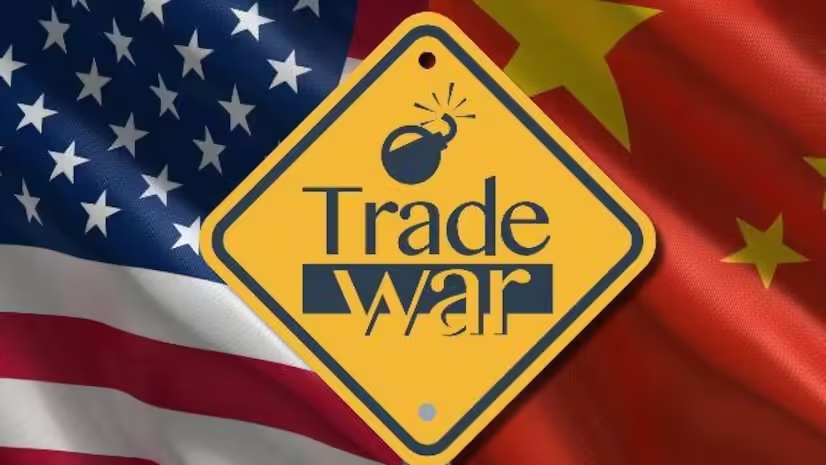U.S. economy has been facing several challenges, including high inflation. Inflation means the prices of goods and services increase over time. When inflation is high, people’s purchasing power decreases because their money does not go as far as it used to. This situation makes life more expensive for everyone. In this context, the U.S. government has been considering increasing tariffs on imports from China. A tariff is a tax on imported goods. While tariffs can protect domestic industries, they also have significant downsides, especially in an economy already struggling with high inflation. Increasing tariffs on Chinese imports could create more challenges for the U.S. economy.
)
Higher Consumer Prices
One immediate effect of increasing tariffs is higher prices for consumers. Many products in the U.S. are either made in China or include parts that are made in China. When tariffs are imposed, the cost of importing these goods goes up. Companies that import these goods often pass on the extra costs to consumers. As a result, prices in stores go up. For a family already struggling with high prices due to inflation, this adds another layer of financial strain.
Increased Costs for Businesses
Businesses that rely on Chinese imports for their raw materials or finished goods will face higher costs. Small businesses, in particular, may find it difficult to absorb these extra costs. They might have to increase their prices, reduce their workforce, or even close down. This not only affects the businesses themselves but also the broader economy. When businesses close, jobs are lost, and economic activity slows down.
Supply Chain Disruptions
The global supply chain is complex and interconnected. China plays a crucial role in this system, providing many of the materials and components needed for manufacturing. Higher tariffs can disrupt these supply chains. Companies might struggle to find alternative suppliers or face delays in getting their products to market. This can lead to shortages and even higher prices, exacerbating inflation.
Retaliatory Tariffs
When one country imposes tariffs, it often leads to retaliatory tariffs from the other country. If the U.S. increases tariffs on Chinese products, China might respond by imposing tariffs on American goods. This can hurt American exporters, particularly in sectors like agriculture and manufacturing, where China is a significant market. Farmers and manufacturers could see their profits decline, leading to economic hardship in regions dependent on these industries.
Impact on Trade Relationships
Tariffs can strain international trade relationships. The U.S. and China are two of the largest economies in the world, and their trade relationship is vital for global economic stability. Increasing tariffs could lead to a trade war, where both countries keep raising tariffs on each other’s goods. This can have a ripple effect, disrupting global trade and causing economic instability worldwide. Other countries might also get involved, further complicating international trade dynamics.
Limited Domestic Production Capacity
One argument for tariffs is that they protect domestic industries by making imported goods more expensive. However, in many cases, the U.S. does not have the capacity to quickly ramp up production to replace imported goods. Building new factories and training workers takes time and significant investment. In the short term, consumers and businesses are left with fewer choices and higher prices. This can stifle innovation and reduce overall economic growth.
Impact on Inflation Control Measures
The U.S. Federal Reserve, which is responsible for controlling inflation, may find its job more difficult if tariffs are increased. Higher tariffs can lead to higher prices, counteracting the Fed’s efforts to control inflation. The Fed might have to raise interest rates more aggressively to combat inflation, which can slow down economic growth and increase the risk of a recession. Higher interest rates make borrowing more expensive for businesses and consumers, which can reduce spending and investment.
Burden on Low-Income Families
Higher prices for everyday goods disproportionately affect low-income families. These families spend a larger portion of their income on essentials like food, clothing, and household items. When the prices of these goods go up due to tariffs, low-income households feel the pinch more acutely. This can lead to increased economic inequality and social tension, as the gap between the rich and the poor widens.
Potential Long-Term Consequences
In the long term, consistently high tariffs can discourage investment and innovation. Businesses might be less willing to invest in new technologies or expand their operations if they face uncertainty about trade policies and higher costs for imported materials. This can slow down economic growth and reduce the overall competitiveness of the U.S. economy on the global stage.
Alternatives to Tariffs
Given these challenges, it is important to consider alternatives to increasing tariffs. One alternative is negotiating better trade deals that address specific concerns without resorting to blanket tariffs. Another approach is to invest in domestic industries to make them more competitive globally. This could include providing subsidies for research and development, improving infrastructure, and offering training programs for workers. These measures can help build a more resilient and self-sufficient economy without the negative side effects of tariffs.
Conclusion
Increasing tariffs on Chinese imports during a period of high inflation would likely exacerbate economic challenges in the U.S. Higher consumer prices, increased costs for businesses, supply chain disruptions, retaliatory tariffs, strained trade relationships, limited domestic production capacity, and the impact on inflation control measures are all significant concerns. These effects would be felt across the economy, from low-income families to large corporations. Instead of relying on tariffs, the U.S. should explore alternative strategies to strengthen its economy and manage inflation more effectively. By focusing on long-term solutions, the U.S. can promote sustainable economic growth and stability.
4o





Leave a Reply